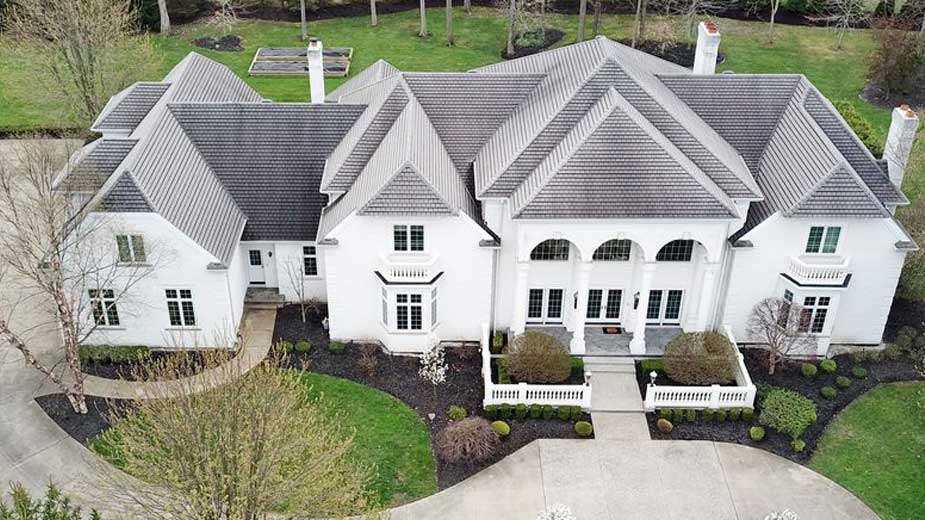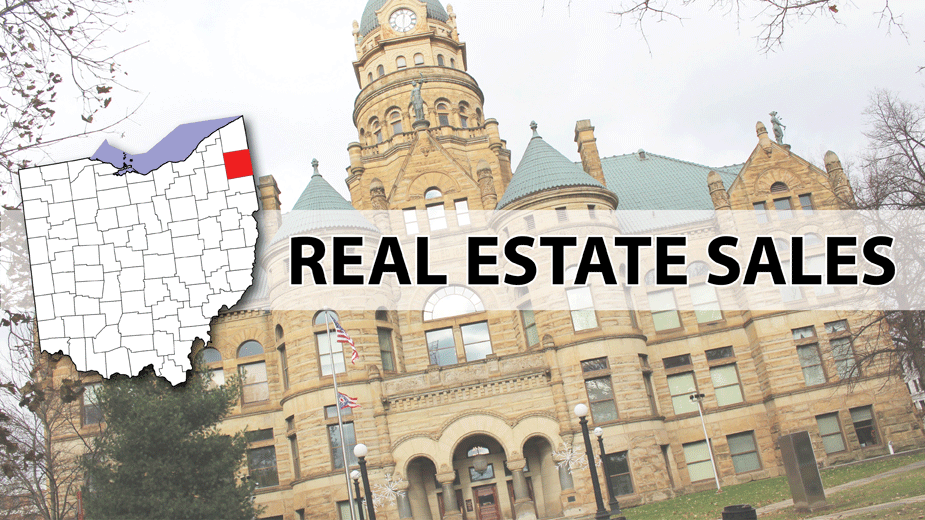Auctions Tick Up for Luxury Homes and Acreage
YOUNGSTOWN, Ohio — An auction June 29 of a Tuscan-style, luxury home at 860 Sawgrass St. NE in Warren attracted six bidders from the region, as well as one from Italy.
Jared Dutton, auctioneer with the Dutton Real Estate Group, North Canton, declined to give the exact sale price, but the suggested opening bid for the estate was $715,000, he says, a fraction of the $1,995,000 it was originally listed for. After a down payment of $9,500, the buyer has 45 days to pay the balance, whether in cash or with a loan
The property had been listed a few years until the owner decided to sell it at auction, having already downsized and moved out, Dutton says.
“When you get above $500,000, the time-on-market isn’t 30 or 60 days typically,” he says. “They tend to sit a little bit longer. Sellers still want to sell them and having a property on the market for six months to a year can be stressful.”
While it’s common to see real estate auctions for foreclosures or court-ordered sales, high-end residential properties also benefit from auctions, Dutton says. Because the properties tend to be unique and command a higher price than a typical listing, auctions “maximize the value” by generating several offers at once, he says.
“If you have people bidding against each other, how can you not maximize price?” Dutton asks.
The Sawgrass property features “a lot of unique craftsmanship and quality,” Dutton says. Sitting on 1.4 acres, the nearly 9,000-square-foot house features hand-etched crown molding throughout, a gourmet kitchen, large stone patio and private backyard.
For singular properties such as this, it can be difficult to find comparable properties, or “comps,” which act as a barometer for pricing, he says. It also requires greater effort on the part of the auctioneer to attract bidders. Dutton anticipated four to eight bidders leading up to the auction, which he says is about right for this type of auction.
“We had a great crowd,” Dutton says. “I was pleased with the bidders, with the process and it’s kind of right about where we thought.”
Dutton, a family-owned real estate company that’s been around since the 1950s, specializes in high-end properties that are difficult to attract activity on the conventional market, Dutton says. About 70% of its business is residential, including 18 to 24 high-end residential-property auctions held annually, he says.
Auctions for high-end residential properties are trending up, he says. As far as bidders, the company sees “a lot of traffic” coming from the Pittsburgh and Cleveland areas with people looking to work in those cities but commute from the Youngstown/Warren area, where the cost of living is much lower.
“People are realizing this is a great marketing method for high-end residential properties,” he says.
Along with luxury houses, auctions are popular ways to sell barns and acreage, says Dick Kiko, CEO and broker at Kiko Auctioneers, Canton. Kiko hosts several auctions in the Mahoning Valley and recently auctioned off a 200-acre farm with equipment and house in Lisbon for nearly $897,000. Another 15-acre horse farm with a house in that area sold for more than $700,000.
With the economy strong and consumer confidence up, auctioneers are seeing “a little tick up in the premier real estate sector” among properties selling at $500,000 and up, Kiko says. In the five-county region, land and farms are doing well, he says, with 75% of Kiko’s residential auctions including acreage.
“In our region, the high-price stuff is on land in the country. That’s the high-value real estate,” Kiko says. “A 100-acre farm with a house and barn is worth a lot of money.”
Such auctions do well because those types of properties are rare, he says, “so they’re benefited by competition of bidders.” Auctions also put the seller in a position to control the terms of the sale, including the day to sell and the day to close, he says.
“It’s a very powerful position for a seller,” Kiko says. “On a listing, I’m going to take an offer and I’m going to accept an offer, and all future offers I don’t even get. You’re limited to one-on-one negotiations for a listing. At auction, you invite everybody there and you exhaust the marketplace.”
In addition to the rarity of a property, its location always is a factor, says Paul Basinger, auctioneer and real estate broker for Basinger Auction Service, Boardman. If a singular property is not in a high-demand area, it can sit on the market for years and won’t fetch the highest price at auction, he says.
For this reason, Basinger, who is a member of the Auction Council of the National Association of Realtors, recommends sellers of singular properties in high-demand areas first consider an auction rather than listing traditionally and letting it sit unsold with a listed price, he says.
“Across the nation, a well-advertised public auction is the best way to get the most money in the shortest amount of time, provided it’s a high-demand area,” he says.
This month, Basinger auctioned a three-bedroom ranch house on 30.5 acres on Johnson Road in Lowellville with an opening bid of $200,000. Leading up to the auction, the “buy it now” price was set at $279,500, he says. Originally, the property was listed at $365,000 but sat six months, he says.
While the design of the house is good, the price of the property was reduced after appraisal. The property sits next to high-tension wires and only part of the land is tillable, he says. At the time of this writing, Basinger was preparing for the auction on July 9.
“If it were in a different area, it would be sold already,” Basinger says.
Kiko properties have sold at auction for more than the listing price as well, Kiko notes. The auction creates the demand, he says, provided the auctioneer properly markets the property.
Whether Kiko markets an auction regionally or nationally depends on the property, he says. “Regional buyers buy regional stuff,” and may be influenced to buy something they weren’t necessarily searching for, he says. In other cases, Kiko has sold real estate to buyers as far as New York and California because they were looking to move back and wanted specific things, he says.
“The internet allows us to reach those people way easier than years before,” he says. “We’ve sold farm equipment to Australia in the past.”
Even if an auction draws many people, some won’t bid until the end while others won’t bid at all if it goes over their limit too early, Kiko adds. During a Kiko auction that drew more than 80, only five participated, he says.
“Some places, it’s like an open house,” Kiko says. “People will come just to look, but they’ll register and never had any intention of bidding.”
For buyers, Kiko cautions against auctions that note a reserve price, which is a hidden minimum price that the seller is willing to accept. In this type of “nonabsolute” auction, the seller has the right to accept or reject any offer. Kiko advises buyers to look for “absolute” auctions, where the asset is sold to the highest bidder.
“Buyer beware when it’s a reserve auction because the buyer might not get it, even if he’s the highest bidder,” Kiko says. “It must say the word ‘absolute’ in any form of advertisement.”
Pictured: This property in Warren was listed for a few years before it went to auction.
Copyright 2024 The Business Journal, Youngstown, Ohio.



